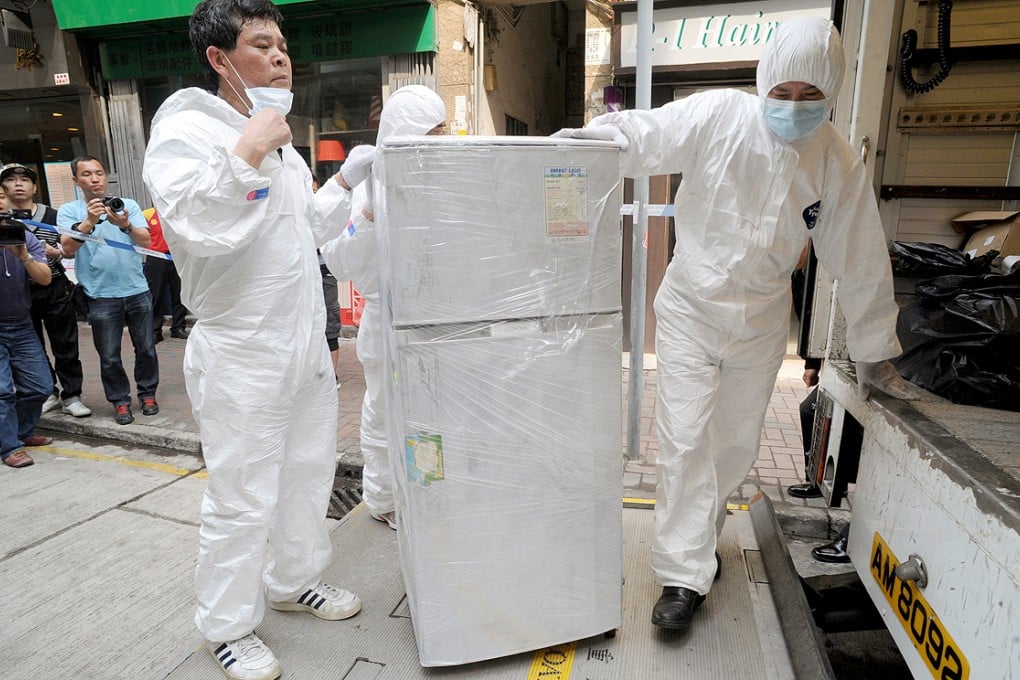‘Bags of human hands and feet’ found at scene of double murder of elderly couple
A jobless man who allegedly killed and dismembered his parents intended to surrender to police to seek redemption for his sins, the Court of First Instance heard.

A jobless man who allegedly killed and dismembered his parents intended to surrender to police to seek redemption for his sins, the Court of First Instance heard yesterday.
Henry Chau Hoi-leung's friend Chan Sing-yiu told the court he believed that was the main reason Chau decided to turn himself in.
Barrister Nicholas Adams, representing Chau, 30, then asked Chan: "Is it because he could not handle the relationship with his parents well?"
Chan answered: "Yes."
Chan, 32, said Chau confessed the deed to him and Chau's cousin, Siu Wing-kwan, in Tsim Sha Tsui early on the morning of March 15 last year.
He said Chau had described to him how he and his alleged accomplice Tse Chun-kei killed his parents, Chau Wing-ki, 65, and Siu Yuet-yee, 62, by "one person, one knife".